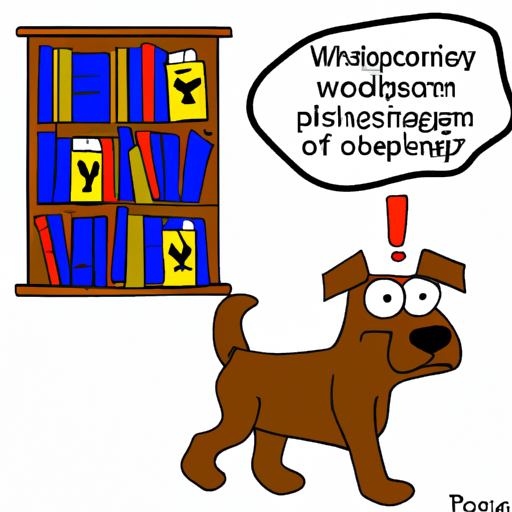Understanding Your Dog’s Behavior
You might have seen your dog pacing around the house and wondered why they’re doing it. You see, dogs communicate their feelings through actions, and pacing is one such action. It’s important for you, as a caregiver, to understand that pacing could be a sign of several things such as anxiety, boredom, or even a physical ailment.
Common Reasons for Pacing
- Anxiety: Dogs pace when they are anxious or stressed. This could be due to a change in the environment or routine, such as a new pet or a family member, or even due to separation anxiety.
- Boredom: Just like humans, dogs can get bored too. If they don’t have enough physical or mental stimulation, they might start pacing.
- Physical ailments: Sometimes, pacing can indicate a physical problem, such as gastrointestinal discomfort or neurological disorders.
How to Address Pacing
Understanding is the first step, but how do you address pacing? Here are some strategies:
- Provide mental and physical stimulation: Regular exercise, interactive toys, obedience training, or puzzle games can keep your dog busy and reduce pacing.
- Maintain a stable environment: Try to keep changes in the house to a minimum. If change is unavoidable, try to gradually introduce your dog to the new situation.
- Visit a vet: If pacing persists, it’s always a good idea to consult with a vet. They can rule out any potential physical health issues and provide guidance.
The Role of Diet in Pacing
Here’s a table to illustrate how diet can influence pacing:
| High Quality Diet | Poor Quality Diet | |
|---|---|---|
| Physical Health | Good physical health reduces chances of discomfort that leads to pacing. | Poor nutrition can lead to health issues that cause discomfort and pacing. |
| Mental Health | A balanced diet supports brain function and reduces anxiety. | Nutrient deficiencies can lead to increased anxiety and agitation. |
Preventing Pacing
Prevention is always better than cure. Here are some preventive measures:
- Regular exercise
- Mental stimulation through games and training
- Regular vet check-ups
- Maintaining a stable and peaceful environment
FAQs
Q: Why is my dog pacing at night?
A: Your dog might be pacing at night due to anxiety, discomfort, or a disruption in their normal routine.
Q: Can pacing be a sign of pain in dogs?
A: Yes, pacing can be a sign of physical discomfort or pain in dogs.
Q: How can I help my dog stop pacing?
A: You can help your dog stop pacing by providing physical and mental stimulation, maintaining a stable environment, and consulting with a vet if necessary.
Q: Could my dog’s diet be contributing to their pacing?
A: Yes, a poor-quality diet can lead to health issues which can cause discomfort and subsequent pacing.
Remember, as a caregiver, your role is crucial in understanding and addressing your dog’s pacing. It may take some patience and effort, but the reward is a happier, healthier pooch.



